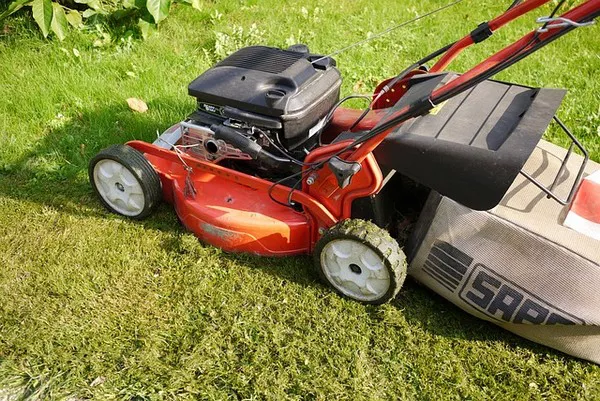Maintaining a lawn mower is essential for its longevity and optimal performance. One of the common questions that arise among lawn mower owners is, “Can I wash a lawn mower?” The answer is yes, but with certain precautions and techniques to avoid damaging the machine. This article will explore the reasons for washing a lawn mower, the correct methods to do so, and the benefits of keeping your lawn mower clean.
Why Should You Wash Your Lawn Mower?
Washing a lawn mower is crucial for several reasons:
Preventing Rust and Corrosion: Grass clippings, dirt, and moisture can accumulate on the mower, leading to rust and corrosion. Regular cleaning helps prevent these issues and extends the mower’s lifespan.
Improving Performance: A clean mower performs better. Grass clippings and debris can clog the mower deck and blade, affecting the cutting efficiency. Cleaning ensures that the mower operates at its best.
Ensuring Safety: A dirty mower can be a fire hazard. Grass and debris near the engine or muffler can ignite. Regular washing reduces this risk.
Enhancing Aesthetics: A clean mower looks better and reflects the owner’s commitment to maintenance.
Preparing to Wash Your Lawn Mower
Before washing your lawn mower, you need to take some preparatory steps:
Safety First: Ensure the mower is turned off and the spark plug is disconnected to prevent accidental starting.
Remove Excess Debris: Brush off loose grass clippings and dirt using a broom or brush. This step makes the washing process more effective.
Choose the Right Location: Wash your mower in a well-ventilated area, preferably on a flat surface. Avoid washing on grass to prevent waterlogging and mud.
Gather Supplies: You will need a garden hose, mild detergent, a bucket, a soft brush or sponge, and a towel for drying.
Washing the Lawn Mower
The process of washing a lawn mower involves several steps, ensuring that all parts are cleaned without causing damage:
Cleaning the Mower Deck:
Tilt the mower on its side with the air filter and carburetor facing up to prevent oil and gas from leaking.
Use a garden hose to spray water underneath the deck. Be careful not to use high pressure, as it can damage components.
Apply mild detergent and use a brush to scrub off stubborn dirt and grass clippings.
Rinse thoroughly with water.
Cleaning the Blades:
Wearing gloves, carefully remove the blades if possible.
Scrub the blades with a brush and detergent to remove any buildup.
Rinse and dry the blades thoroughly before reattaching them.
Cleaning the Exterior:
Use a sponge or soft brush with soapy water to clean the exterior of the mower.
Avoid spraying water directly on the engine or electrical components.
Rinse off the soap with a gentle stream of water.
Cleaning the Engine Area:
Use a damp cloth to wipe down the engine and surrounding components.
Avoid using excessive water around the engine to prevent moisture from entering critical areas.
Drying and Reassembling the Lawn Mower
After washing, proper drying and reassembly are crucial to prevent rust and ensure the mower is ready for use:
Drying the Mower:
Use a towel to dry all accessible parts of the mower.
Allow the mower to air dry in a sunny spot, ensuring all moisture evaporates.
Reattaching the Blades:
Once the blades are completely dry, reattach them securely.
Ensure that the blades are balanced and properly aligned.
Reconnect the Spark Plug:
Reconnect the spark plug, ensuring it is securely in place.
Tips for Effective Lawn Mower Cleaning
To maintain your lawn mower effectively, consider these additional tips:
Regular Cleaning: Clean your mower after every use to prevent buildup and make the cleaning process easier.
Use the Right Tools: Invest in a mower cleaning tool or scraper specifically designed to remove grass clippings and debris.
Avoid Harsh Chemicals: Use mild detergents to prevent damage to the mower’s paint and components.
Inspect for Damage: While cleaning, inspect the mower for any signs of wear or damage. Address any issues promptly to avoid costly repairs.
Benefits of Regular Lawn Mower Cleaning
Regularly washing your lawn mower offers several benefits:
Extended Lifespan: Regular cleaning prevents rust and corrosion, extending the life of your mower.
Optimal Performance: A clean mower operates more efficiently, providing a better cut and saving you time and effort.
Safety: Removing debris reduces the risk of fire hazards and ensures safe operation.
Cost Savings: Proper maintenance, including cleaning, reduces the need for expensive repairs and replacements.
Frequently Asked Questions
Can I use a pressure washer to clean my lawn mower?
It is not recommended to use a pressure washer on a lawn mower. The high-pressure water can damage components and force water into areas where it shouldn’t be, such as the engine and electrical parts.
How often should I wash my lawn mower?
Ideally, you should clean your lawn mower after every use. Regular cleaning prevents buildup and makes the process quicker and easier.
What should I do if water gets into the engine?
If water accidentally gets into the engine, dry it thoroughly and let it air out before attempting to start the mower. If the mower doesn’t start, consult a professional for assistance.
Can I wash an electric lawn mower?
Yes, you can wash an electric lawn mower, but you need to take extra precautions to avoid water exposure to the electrical components. Use a damp cloth for cleaning and avoid direct water sprays.
See Also CAN I JUMP MY LAWN MOWER WITH MY CAR?
Conclusion
Washing your lawn mower is an essential part of its maintenance routine. By following the proper steps and precautions, you can keep your mower clean, extend its lifespan, and ensure it operates at peak performance. Regular cleaning not only enhances the mower’s efficiency but also ensures safety and saves you money on repairs. So, the next time you ask, “Can I wash a lawn mower?” remember that with the right approach, the answer is a resounding yes.

